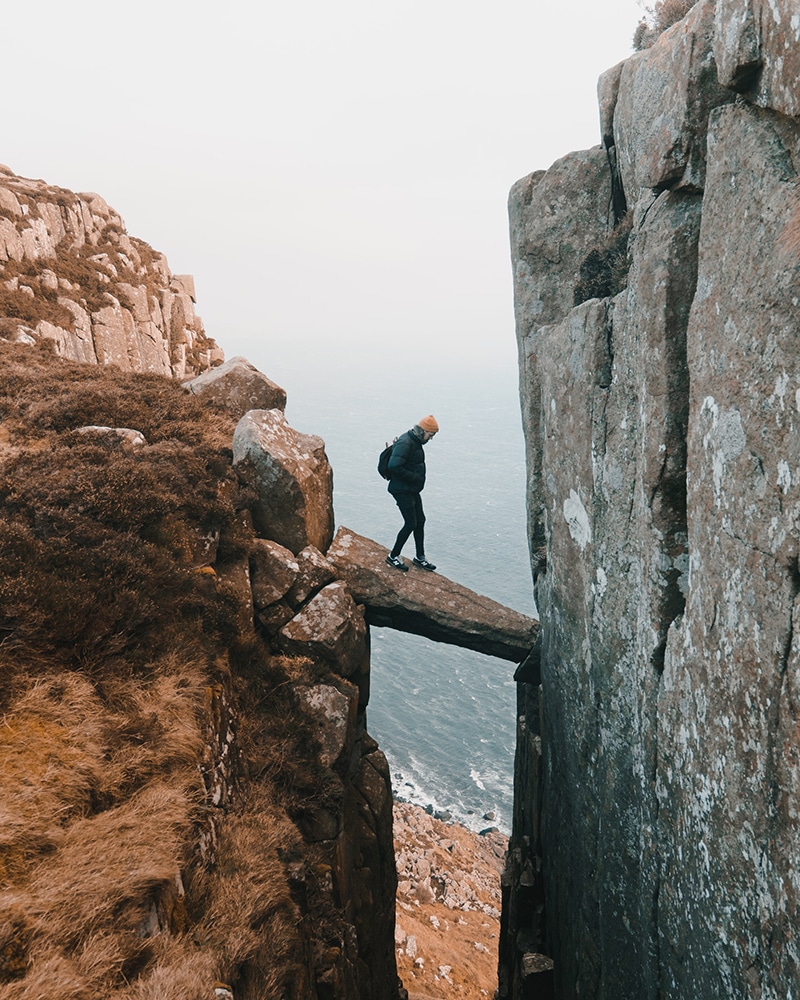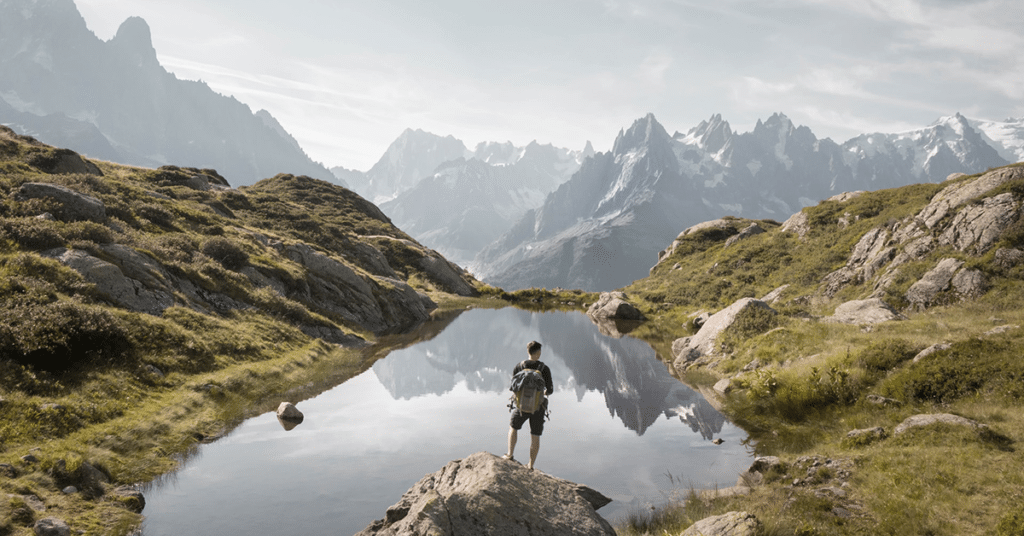10 Reasons You Should Spend More Time Outdoors
We know the outdoors are good for us. It’s not just because of those easily listable physiological benefits.
Wild places are evocative. They allow us to run further in our own imaginations.
In some cases, they restore us to simpler ways of being. The outdoors afford us time to rest. They allow us to reflect and stretch out our potential.
Maybe it’s some congenital memory of primordial ancestors in a world without cities, or boundaries. Whatever it is – there is a deeper reason why physicians prescribe time outdoors for various conditions, from attention-deficit disorder to anxiety.

In this article, we will explore ten such reasons and attempt to get a little closer to uncovering that special place in all our hearts, which only the outdoors can reach:
10. The Outdoors Can Improve our Memory
Stress hormones are inhibitors to our mental faculties – when we’re overworked, or preoccupied, our overall cognition takes a downturn.
Yet in 2012, there was a study in a Journal of Affective Disorder, which delved into the experiences of sufferers of a Major Depressive Disorder.
For the participants, the study proved that prolonged periods of time spent in the outdoors – a long forest walk, for example – enabled them to reclaim more short-term memories and gain greater access to their working memory.
9. Being Outdoors Helps Your Eyesight
It might sound pretty obvious, but long periods of time spent scrolling through social media, poring over digital screens, causes excessive damage to your eyesight. Especially among children, hours upon hours indoors means an increased amount of screen time, which leads to irreversible visual changes. Time indoors has been linked in many scientific studies to cases of myopia (the state of being near-sighted).
Whereas children who were more accustomed to spending time outdoors were less likely to experience these difficulties. When we focus on more varied, or distant, stimuli we exercise different muscles in our eyes and allow for more relaxation.
Find a great outdoor running workout for you
8. Nature Helps Us Break Internal Cycles
There was another journal study, which showed that stints of outdoor sleeping can positively regulate our internal clocks – otherwise known as the circadian rhythm.
Typically, on camping holidays, you’ll notice that you sleep and rise naturally with the sun. Thereby daylight is the essential regulator of this rhythm that we fall out of sync with it due to overexposure to artificial light.
If the circadian rhythm is disrupted, humans can develop consequent physiological and cognitive defects.

7. Generally, There’s Less Stress Outdoors
You often hear it called the ‘rat race’ – really, it’s an ever-spinning hamster wheel of high performance, which is enforced upon us when we hunker down in cities.
Everyday stresses related to salary and professional pressures are commonplace. However, studies have shown that even a small amount of exposure to nature can counteract these rising stress levels, balancing our hormone levels too.
A simple fifteen minutes in nature, every day, can have a substantial payoff.
6. Nature Revives Our Energy Levels
In life, we’re all vying for energy boosts and in nature these boosts are found in abundance. Research has proven that outdoor activities, like kayaking or hiking, serve to spike our internal energy benefits.

Time in green spaces – known in many crowded cities as the ‘lungs’ – is often associated with diminished symptoms of anxiety and depression, as well as lower levels of blood pressure.
Check out these quotes about trees
5. The Outdoors Make Us Stronger
Wilder pastimes, like outdoor swimming, or forest bathing, are commonly used to help boost our immune systems.
There are natural ‘phytoncides’ in the forest air too, which make us healthier and improve our immune function over time. The famous endurance athlete, Ross Edgley (who swam around mainland UK), championed what he called ‘getting wintered’.
In complete opposition to that Danish concept of ‘hygge’, he promoted discomfort as a whetstone for sharpening our mental fortitude.
Dips in cold plunge pools. Barefoot running. It can all be used to help push you outside your comfort zone and to embrace those adverse elements we’re starved of in our domestic lives.
Not only can you strengthen your immune system outdoors – you can also make yourself more mentally resilient.
4. You Can Soak Up More Sun Outdoors
Another thing the outdoors give us – something we can’t live without – is Vitamin D produced through sun exposure, leading to countless positive health benefits.
A sensible amount of sunlight can help to counteract osteoporosis, some forms of cancer and heart disease. So long as we adopt a safe approach, we can use unprotected sun exposure to revitalise ourselves and protect our bodies against these aforementioned diseases.
Check out the Reebok x National Geographic Collection
3. We’re All Less Moody In Nature
We all have that one naysayer friend who insists nature is always out to get us. The truth is, emotional boosts are plentiful outdoors and many researchers have declared that the fastest way to improve your mood is to spend a few minutes in nature.

So, stop trawling your Instagram feed and go out and get those endorphins!
2. The Outdoors Allow Us To Focus
Many clinical therapists will tell you that there is no better setting for meditation, or reflection, than somewhere natureful.
All you have to do is unplug and allow the empowerment to seep in, leading to greater imaginative capabilities and personal insight. Sunlight can contribute to raise your serotonin levels as well, which lifts your energy levels and gives you space to develop a greater attention span.

There have been many studies that prove both adults and children are able to control impulses and concentrate more easily, directly after being in nature – that’s why nature is prescribed to treat various hyperactivity disorders.
1. The Outdoors Allow Us To Escape Indoor Pollution
Indoor pollution is something we don’t often think about, is it? We see those smog-spewing chimneys, huddled around power plants, and somehow presume we’re safe indoors. In actual fact, there is verifiably more pollution indoors.
The Environmental Protection Agency found that the concentration of many pollutants can be up to 100 times higher indoors.
Indoors, you’re exposed to various chemicals and carbon monoxide, as well as all kinds of particulate matter from everyday appliances. Then there’s the usual hideouts of mould and dirt and dust.
Negative symptoms of indoor pollution can include: breathing problems, brain fog, headaches, fatigue… Ventilation helps, but nothing quite does the trick like stepping outside and running off to the welcoming arms of your nearest green space.
Keen to find out more about how the outdoors can benefit us? Check these nature quotes, lessons learnt from living in the woods or out this list of 50 Reasons to Start Swimming Wild.





Comments are closed.